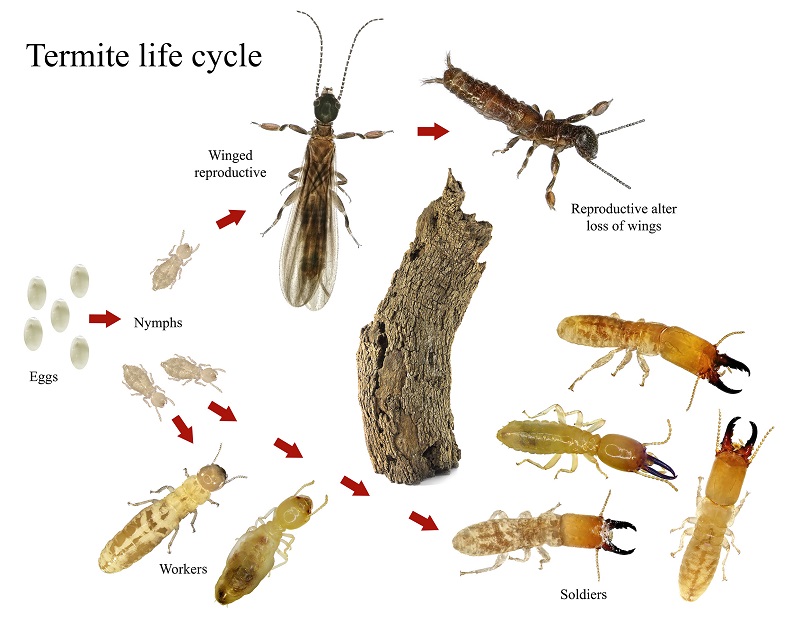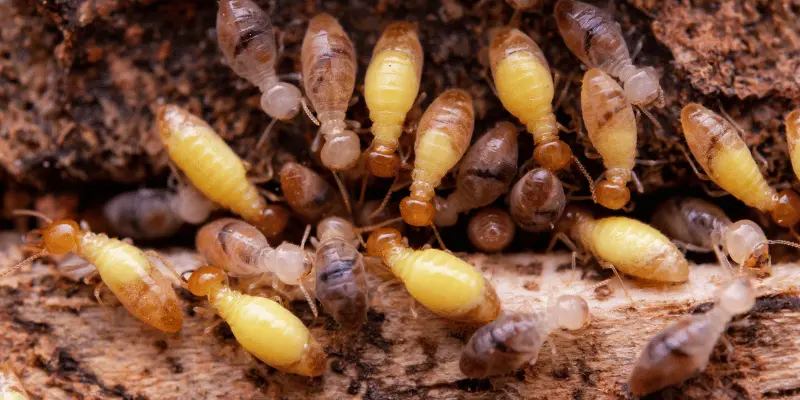Complete Ant Control: Approaches and Services to Defeat Ant Problems
Complete Ant Control: Approaches and Services to Defeat Ant Problems
Blog Article
Ecological Influence of Bug Control: Balancing Effectiveness With Sustainability
The ecological impact of parasite control is a vital issue that needs a delicate balance between attaining efficiency in making certain and managing parasites sustainability of our communities. As we make every effort to secure our plants, homes, and health from the hazards postured by pests, the methods we employ can unintentionally hurt the environment. From using dangerous chemicals that leak into our dirt and water to the unintended consequences on non-target types, the consequences of traditional pest control techniques are far-reaching. There are arising techniques that use hope for a more lasting method to pest management. These solutions not just aim to attend to the instant bug troubles yet also consider the long-lasting wellness of our earth.
Dangerous Chemicals in Bug Control
The application of harmful chemicals in pest control poses significant environmental and health and wellness risks that call for careful factor to consider and reduction approaches. Herbicides, chemicals, and insecticides are commonly utilized to eliminate bugs, yet their extensive application can lead to unintended consequences. These chemicals can infect soil, water resources, and the air, affecting not just the targeted bugs yet also beneficial pests, wild animals, and humans.

To address these dangers, incorporated bug monitoring (IPM) methods are being advertised as a much more sustainable alternative. IPM entails a combination of approaches such as organic control, habitat manipulation, and the targeted usage of pesticides as a last option (ant control salisbury nc). By embracing a holistic technique to pest control, we can minimize the environmental and wellness impacts connected with unsafe chemicals while properly taking care of pest populations
Influence on Non-Target Types
Taking into consideration the unexpected repercussions of insect control techniques, the effect on non-target types is an essential aspect that requires extensive evaluation. While insect control actions aim to target details pests, various other microorganisms in the ecological community might be unintentionally affected. Non-target types, including useful pests, birds, creatures, and also plants, can endure indirect or direct damage from pesticide applications or biological control methods.
Chemicals can have sub-lethal or lethal impacts on non-target varieties. Insecticides designed to combat a certain insect bug might harm pollinators like or natural killers such as ladybugs. Additionally, chemical residues can collect in the setting, impacting non-target organisms over time. Likewise, organic control representatives, if not species-specific, can present risks to unplanned targets, interfering with the eco-friendly equilibrium.
To reduce the influence on non-target types, incorporated insect management (IPM) techniques that highlight an all natural approach to pest control are advised. These approaches prioritize the use of eco friendly practices, reducing harm to advantageous organisms while efficiently managing pest populaces. Performing detailed danger analyses and keeping track of the results of bug control initiatives are essential action in safeguarding non-target varieties and advertising overall ecological community health and wellness.
Soil and Water Contamination
Unintended environmental repercussions of insect control techniques extend past impacting non-target species, with significant effects for soil and water contamination. Chemicals, herbicides, and chemical fertilizers made use of in bug control can seep right into the soil and infect groundwater, positioning a danger to both earthbound and marine ecosystems. Soil contamination can disrupt the balance of microbes crucial for nutrient biking and plant growth, causing decreased soil fertility and efficiency. Moreover, these chemicals can persist in the atmosphere for prolonged periods, building up in the soil and possibly going into the food cycle.
Water contamination is one more critical issue related to parasite control methods. Overflow from agricultural areas treated with chemicals can lug these chemicals right into neighboring water bodies, affecting marine organisms and water high quality. Impurities in water resources can have significant repercussions, affecting not only aquatic life but additionally human health and wellness through the consumption of contaminated water or water microorganisms. To mitigate soil and water contamination from insect control tasks, incorporated pest administration techniques that prioritize sustainability and reduce chemical inputs are essential.
Air Contamination From Chemical Use
Direct exposure to airborne chemicals during agricultural applications postures a substantial worry for air pollution control actions. When chemicals are sprayed onto crops, they can volatilize right into the air and kind unpredictable natural compounds (VOCs) and other airborne pollutants. These chemicals can add to the development of ground-level ozone, a significant part of smog that can have destructive effects on human wellness, plant productivity, and total air high quality. In addition, pesticide drift, where pesticides are carried by the wind to unintended areas, can result in the contamination of neighboring communities and water bodies.
Methods for Sustainable Bug Control
In the world of look what i found agricultural practices, applying lasting parasite control approaches is critical for maintaining ecological equilibrium and safeguarding plant yields. Lasting pest control stresses making use of eco-friendly methods to take care of bug populations efficiently while lessening injury to non-target microorganisms and communities. Integrated Insect Monitoring (IPM) is a widely adopted approach that integrates organic, social, physical, and chemical control methods to achieve long-term pest management remedies.
Plant turning and diversification are additionally effective techniques to interfere with pest life cycles and produce much less positive problems for bugs to grow. Inevitably, by integrating these sustainable parasite control techniques, farmers can attain an equilibrium between pest administration effectiveness and environmental stewardship.
Verdict
In conclusion, the ecological impact of pest control techniques have to be carefully thought about to balance performance with sustainability. Damaging chemicals used in pest control can result in dirt and water contamination, air pollution, and injury non-target species - ant control services. It is essential to implement lasting pest control methods to reduce these unfavorable impacts on the setting and advertise a healthier ecological community for future generations
By adopting a holistic strategy to pest control, we can decrease the ecological and health influences associated with dangerous chemicals while efficiently handling pest populaces.

To minimize the air pollution caused by chemical usage, it is necessary to take on incorporated pest monitoring techniques that focus on the usage of non-chemical insect control approaches, such as plant rotation, natural killers, and immune plant selections. Lasting pest control highlights the use of eco pleasant methods to manage parasite populations efficiently while lessening injury to non-target microorganisms and environments. Integrated Insect Administration (IPM) is a widely embraced strategy that combines biological, cultural, physical, and chemical control methods to achieve long-term parasite management options.
Report this page